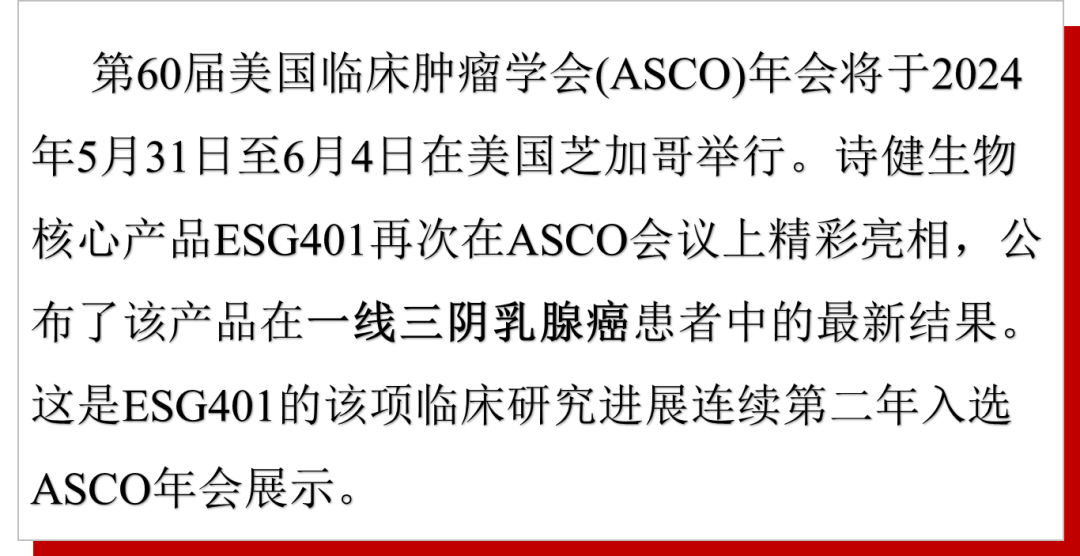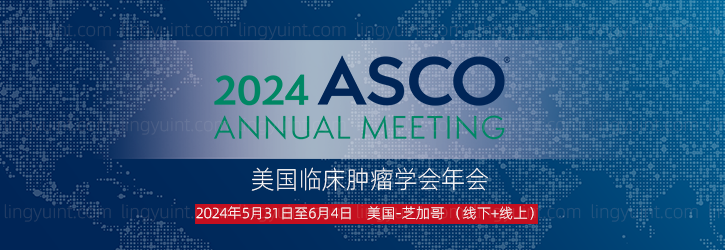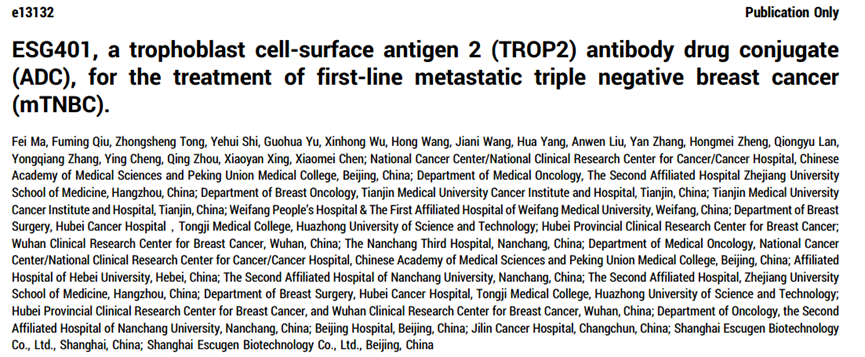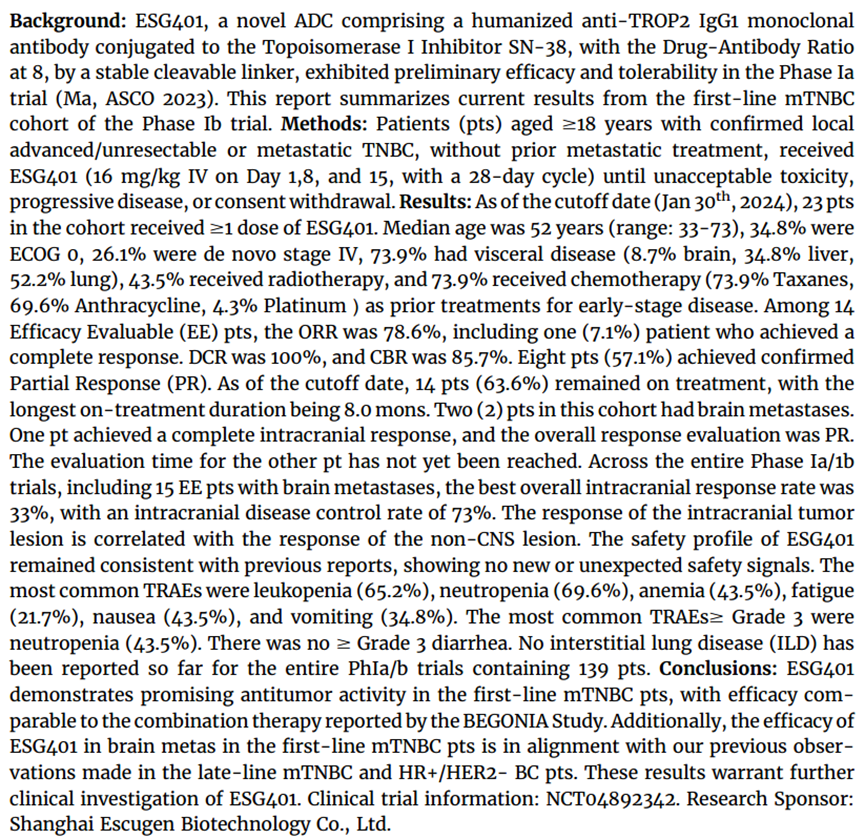


Product Introduction:
ESG401 is Escugen's first ADC in the clinical stage of development. It features an innovative stable and degradable linker that significantly reduces off-target toxicity. Clinical data suggest that ESG401 has a higher tolerable dose than other ADCs targeting the same antigen, with lower incidence and severity of off-target and on-target toxicities, demonstrating a clear safety advantage.
Research Background:
ESG401 is a novel ADC that links the topoisomerase I inhibitor SN-38 to a humanized Trop2 IgG1 monoclonal antibody via a stable cleavable linker, with a drug-to-antibody ratio (DAR) of 8. ESG401 demonstrated preliminary antitumor efficacy and good tolerability in Phase Ia trials (Professor Ma Fei, ASCO 2023). This report summarizes the interim results of the first-line mTNBC cohort in the Phase Ib trial.
Research Methods:
Patients aged ≥18 years with locally advanced/unresectable or metastatic TNBC who had not received prior metastatic treatment were enrolled in the study and received ESG401 (intravenous injection on days 1, 8, and 15 at 16 mg/kg, every 28 days as one cycle) until unacceptable toxicity, disease progression, or withdrawal of consent.
Research Results:
As of January 30, 2024, 23 patients in the first-line mTNBC cohort had received at least one dose of ESG401. The median age was 52 years (range: 33-73 years), with 34.8% of participants having an ECOG score of 0, 26.1% presenting with stage IV disease at initial diagnosis, and 73.9% having visceral metastases at baseline (8.7% with brain metastases, 34.8% with liver metastases, and 52.2% with lung metastases). In the early stages of disease, 43.5% of participants had previously received radiotherapy, and 73.9% had previously received chemotherapy (including 73.9% with taxanes, 69.6% with anthracyclines, and 4.3% with platinum agents).
Among the 14 evaluable participants for efficacy, the objective response rate (ORR) was 78.6%, with 1 patient (7.1%) achieving complete response (CR), and the disease control rate (DCR) was 100%, with a confirmed benefit response (CBR) of 85.7%. Eight patients (57.1%) had confirmed partial response (PR). As of the cutoff date, 14 patients (63.6%) were still receiving treatment, with the longest duration of treatment being 8.0 months.
In this cohort, 2 patients had brain metastases, with 1 achieving complete intracranial response (I-CR) and an overall response assessment of PR; the other had not yet reached the time for assessment. Across the entire Phase Ia/Ib trial, a total of 15 evaluable patients with brain metastases were included, with an overall best intracranial response rate of 33% and an intracranial disease control rate of 73%. The response of intracranial tumor lesions was consistent with that of non-CNS lesions.
The safety profile of ESG401 was consistent with previous reports, with no new or unexpected safety signals detected. The most common treatment-related adverse events (TRAEs) were leukopenia (65.2%), neutropenia (69.6%), anemia (43.5%), fatigue (21.7%), nausea (43.5%), and vomiting (34.8%). The most common ≥Grade 3 TRAE was neutropenia (43.5%). No Grade ≥3 diarrhea was reported. To date, no interstitial lung disease (ILD) has been reported in any of the 139 patients across the Phase Ia/Ib trial.
Conclusions
ESG401 demonstrated good antitumor activity in first-line metastatic TNBC patients, with efficacy comparable to the combination therapy reported in the BEGONIA study. Additionally, the efficacy of ESG401 in treating brain metastases was consistent in first-line mTNBC patients with brain metastases compared to our previous observations in late-line TNBC and HR+/HER2- breast cancer patients with brain metastases. These results suggest that further clinical investigation of ESG401 is warranted. (Clinical trial registration number: NCT04892342)
